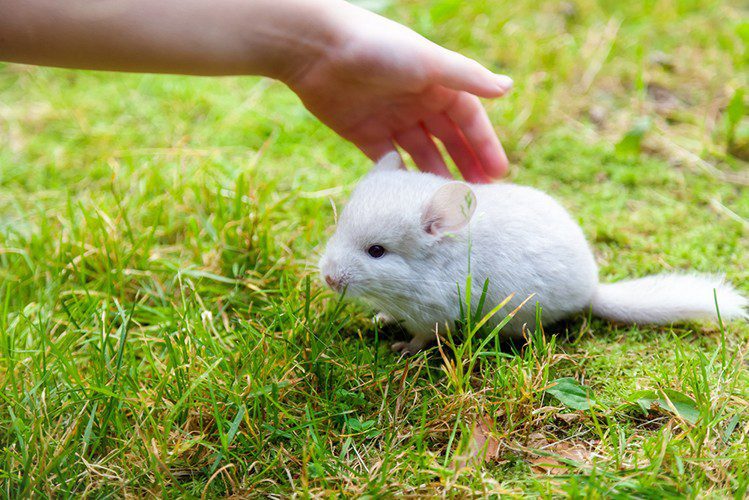
Is it possible to walk with a chinchilla on the street?
Many owners wonder if it is possible to walk a chinchilla on the street. Their desire is understandable, because the rodent sits in a cage almost 24 hours a day, and I would like to let it run on the grass! But if the chinchilla could talk, she would not approve of this idea. And that’s why.
- Walking on the street is a huge stress for the animal.
In nature, chinchillas live in the desert highlands and are happy to live in the wild. But the decorative chinchilla sees the world in a completely different way. Restricted to the confines of a cell or apartment, she knows nothing about the “outside” world, and getting to know him really shocks her. Firstly, the nature outside the window has little in common with highland landscapes. Secondly, road noise, dust, a huge amount of unfamiliar smells, including those left by predators, and much more will become unexpected and unpleasant discoveries for a small animal – powerful provocateurs of stress.
- Chinchilla is a nocturnal animal.
By nature, chinchillas are nocturnal animals, and the peak of their activity occurs at night. Imagine how a rodent will feel if it is brought out into a hostile street, moreover, in a not the most favorable period?
- The street is a real danger.
If you have ever dealt with chinchillas, you know how fast they run. What if, during a walk, a dodgy pet breaks off the harness or, for example, jumps over the fence of the enclosure? Do you think the chances of catching him are great?
In addition to the danger of escape, there are others. Some of them are predators. Chinchilla is a rodent, a natural prey for cats, dogs and large birds. When you go for a walk with a chinchilla, you cannot be sure that it is completely safe. After all, somewhere nearby a hunting dog can walk, which, having noticed the “prey”, will definitely rush in pursuit.
- Diseases and parasites.
Walking on the grass, your pet can easily pick up a dangerous infectious disease or become infected with parasites. He is completely defenseless against them.

- Poisoning.
On the street, a chinchilla can “eat” poisonous plants. At best, this will result in a mild indigestion, and at worst, serious poisoning.
- Overheat.
Chinchillas do not tolerate heat very well. In the sun, a pet overheats in a matter of minutes, which is very dangerous not only for his health, but also for life.
And these are just the main arguments, in practice there are much more of them. But walks are so useful, you say. In practice, if a chinchilla has a spacious cage, then it also receives the necessary physical activity within it. In addition, if desired, the rodent can be released to run around the apartment. About this in the article “”.
And if you really want to please your pet with contact with nature, get fragrant alpine hay for him (for example, Fiory). He will definitely appreciate it!





